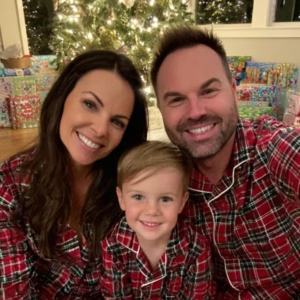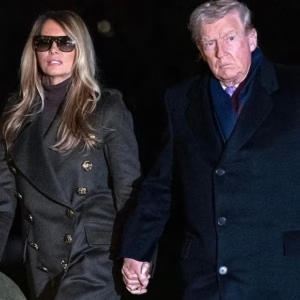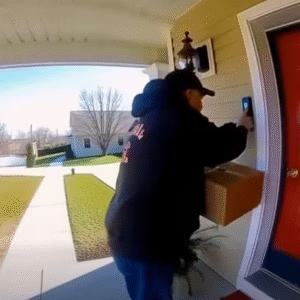Some days feel like a running to-do list—dripping faucets, bills you meant to open yesterday, dinners you reheat twice and nobody really wants. Then a small, quiet moment sneaks in and reminds you why you keep showing up.
I’d stopped by the flea market after my shift at the little home-goods store wedged between the bakery and the nail salon. I wasn’t looking for anything—just letting my brain idle among mismatched teacups and chipped pie plates, breathing in cinnamon, roasted nuts, and the papery scent of other people’s stories.
That’s when I saw them: a grandmother and a tiny girl in a too-thin coat. The child’s sneakers were worn smooth at the toes, but her eyes lit up like fairylights when she spotted a rack of dresses. She tugged at her grandmother’s hand and pointed to a pale yellow cotton dress with a lace trim—simple and perfect in the stubborn way a child’s wish can be.
“If I wear this, I’ll be a princess for the fall festival!” she said, bouncing.
Her grandmother checked the tag and her face changed by a single breath. She crouched to meet the girl’s gaze. “Honey, this is our grocery money. Not this time.”
The little one swallowed and nodded, trying not to let the sadness seep out. It cracked me right down the middle. I remembered my daughter, Lily, at five—how a dress could turn her into the bravest version of herself, and how I had cried in the bathroom afterward, not from regret, but relief that I’d made it happen.
Ten dollars. That’s what stood between this child and feeling seen.
I didn’t think; I just moved. I bought the dress, chased them down by the kettle corn tent, and held out the bag. “This is for her.”
The grandmother’s face crumpled. “I’m raising her alone,” she whispered. “You don’t know what this means.”
“I do,” I said. “Please.”
The girl—Ava—took the bag like it was velvet and stars. “The yellow one! The princess one!” She hugged it to her chest and beamed. The grandmother squeezed my hand, tears mapping the lines on her face, and they disappeared into the crowd.
It wasn’t pride I felt, exactly. More like something stitched itself back together inside me—quiet, small, and steady.
The next morning, I was packing Lily’s lunch while the kettle hummed and she yodeled about a missing sock from the hallway when three firm knocks sounded on the door. I wiped my hands and opened it.
They stood on my porch like a postcard found and returned: the grandmother—Margaret—composed and neat, and Ava in the yellow dress, a pale ribbon in her hair, cheeks pink from the cold. She clutched a gold gift bag and thrust it toward me.
“I hope we’re not intruding,” Margaret said. “I saw your car at the market, noted the plate, and a neighbor helped me find you. We just… wanted to say thank you.”
Ava tipped the bag into my hands. “We made you something. Because you made me feel like a princess.”
Inside was a little wooden box, ribboned clumsily and perfectly. Beneath the lid lay a bracelet strung with mismatched beads the color of October—burnt orange, deep red, gold. It looked like it would feel warm even against winter skin.
Lily padded in, sneaker in one hand. “Who’s—oh! The dress!” Ava twirled once, lace fluttering, and my small kitchen filled with a laugh it felt like we’d been saving space for.
Margaret touched my arm. “Your kindness gave her joy,” she said. “And you gave me something I hadn’t felt in a long time—hope.”
I thanked them and tried not to cry, because the cereal would’ve gone soggy and Lily would’ve teased me for a week.
A week later an envelope arrived: neat cursive on lined paper inviting Lily and me to Ava’s autumn festival. “She insisted on inviting the lady who made her feel seen,” Margaret had written. I hovered on the edge of no, worried I’d be intruding, until Lily read over my shoulder and said, “Mom, she means you. You should go.”
We walked into a gymnasium transformed by construction paper leaves and glitter pumpkins. Paper lanterns swayed; small chairs lined a taped-off stage. Under the string lights, Ava’s yellow dress glowed. She wasn’t just singing—she was shining.
“She’s beautiful,” Lily whispered, squeezing my hand. “I’m so glad you bought the dress. I’m so glad you’re my mom.”
After the performance, Margaret waved us over, eyes bright. Ava barreled into me. “Did you see me?” she asked, breathless.
“I did,” I said, kissing her cheek. “You were wonderful.”
What started as a dress became a habit of showing up for each other. Margaret began stopping by with foil-covered trays and Tupperware that clicked shut with the promise of leftovers. Her cooking didn’t come from a book so much as memory: rosemary rolls that steamed when torn, chicken stewed with carrots and thyme, apple dumplings wrapped in dough so thin it sighed. Lily declared Margaret’s lentil soup tasted like winter sweaters and hugs. Sometimes we’d eat at Margaret’s small round table, the one with mismatched plates and cloth napkins that had seen more dinners than years.
We weren’t replacing anyone; we were filling the quiet spaces. Ava would curl into my side for movie night or ask me to braid her hair like I do Lily’s. Lily, who’d been careful with the idea of grandmothers for years, hugged Margaret around the waist without thinking. It was a choreography we learned by heart: who brought the salad, who poured the tea, who remembered to send photos after.
One evening, as Margaret folded caramelized onions into mashed potatoes, Lily sighed and said, “There’s a boy in my class. He smells like pinecones and lemon gum.”
Margaret didn’t miss a beat. “You’re twelve,” she said, swatting at the air with a dishtowel. “No boys until you’re eighteen. Maybe twenty.”
“Grandma,” Lily moaned, grinning.
“What if she likes two?” Ava asked, legs swinging under the table.
“Then she’d better learn to make dumplings,” Margaret declared. “Some crises only food can fix.”
We laughed until it filled the corners of the room and stayed there, like light.
I still work at the little store between the bakery and the nail salon. I still pack lunches to the hum of the kettle and hunt for orphaned socks. But now there’s a tiny bracelet warm on my wrist, a reminder that the smallest gestures sometimes open the widest doors. Margaret drops by with a bag of apples “because they looked like they missed you,” and Ava brings crayon drawings with too many suns and exactly the right number of hearts. Lily and I bring our own offerings—banana bread that won’t win contests but gets eaten anyway, rides to school, a braid done with patience on a morning when all the ribbons hide.
We never signed anything, never declared anything. We just kept showing up, again and again, until showing up became the thing itself.
People talk about the family you choose. I used to think that meant scanning a room and pointing: you, you, and you. Now I think sometimes it means buying a yellow dress you can’t stop thinking about, or knocking on a stranger’s door with a bracelet made of October beads. It means letting the kind of love that sneaks in sideways pull up a chair and stay.
Not quite strangers. Not quite the family you were born with. Absolutely home.





